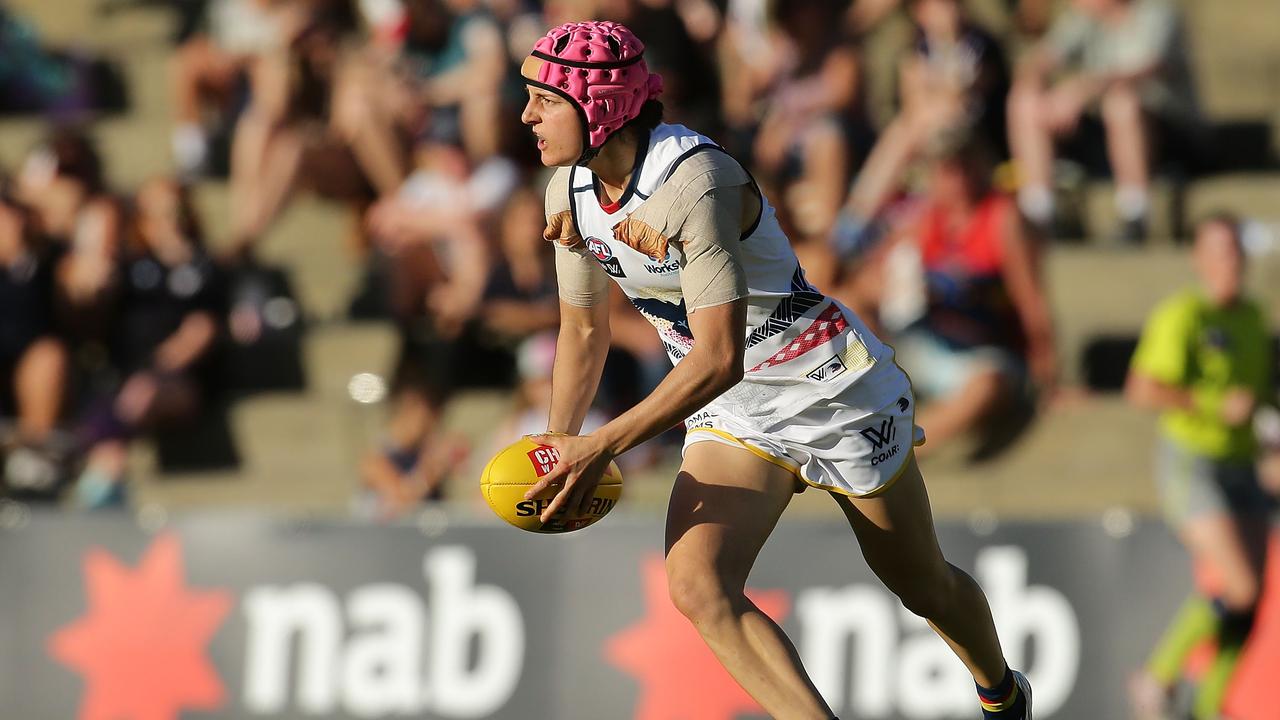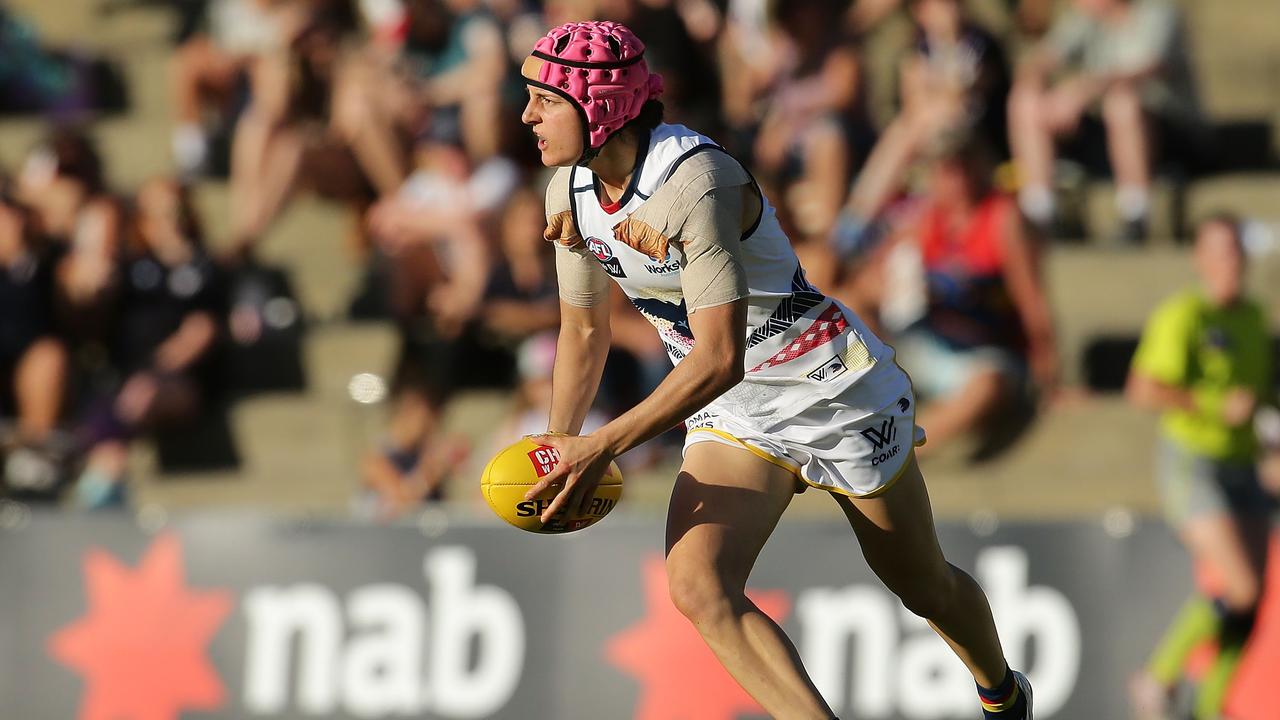AFLW player Heather Anderson the first female athlete to be diagnosed with CTE
A former AFLW champion has become the first female athlete to be diagnosed with CTE in a landmark case.

Former Adelaide AFLW premiership player Heather Anderson has become the first female athlete to be diagnosed with chronic traumatic encephalopathy (CTE) in a landmark diagnosis.
Anderson won a premiership with Adelaide over the course of a career plagued by injuries including at least one concussion.
Watch every match of every round of the 2023 Toyota AFL Premiership Season LIVE on Kayo Sports. New to Kayo? Start your free trial now >
CTE is a brain condition caused by repeated blows to the head, leading to early-onset dementia.
The symptoms can include memory loss, impulse control problems, depression and suicidal ideation, and often do not present until years after the last head trauma, with the condition only able to be diagnosed after death.
Anderson retired at the end of the 2017 season, and returned to work as an army medic in the 1st Close Health Battalion in Perth.
Anderson took her own life in November 2022 at the age of 28, and her brain donated to the Australian Sports Brain Bank.
Professor Michael Buckland is the Director of the Bank, and said the diagnosis is a big step forward because it shows the prominence of the potential for CTE in women as much as men.
“While we‘ve been finding CTE in males for quite some time, I think this is really the tip of the iceberg and it’s a real red flag that now women are participating (in contact sport) just as men are, that we are going to start seeing more and more CTE cases in women,” Professor Buckland said.

Professor Buckland’s research into Anderson’s brain found “low-stage CTE”, along with “three definite lesions in her brain”.
“In other parts of the brain, there was just the hint of the start of the process,” he said.
“So definitely low-stage which would fit with Heather‘s age. That’s what we would expect to see.”
While many symptoms of CTE can include those consistent with early-onset Alzheimer’s, Anderson is said to have had no signs of the disease before her death.
Anderson was known for her trademark bright pink helmet in games, insisted upon by her mother growing up as she played junior rugby league, often against boys significantly bigger than her.
Anderson’s father Brian says he hopes more brains could be donated for research in order to study the effects of contact sport on female athletes.
“I haven‘t really put my mind to a legacy,” Anderson said.
“And maybe it’s too early and maybe I don’t really know what I want the legacy to be. And at this stage, I don’t have a dream for legacy.”






